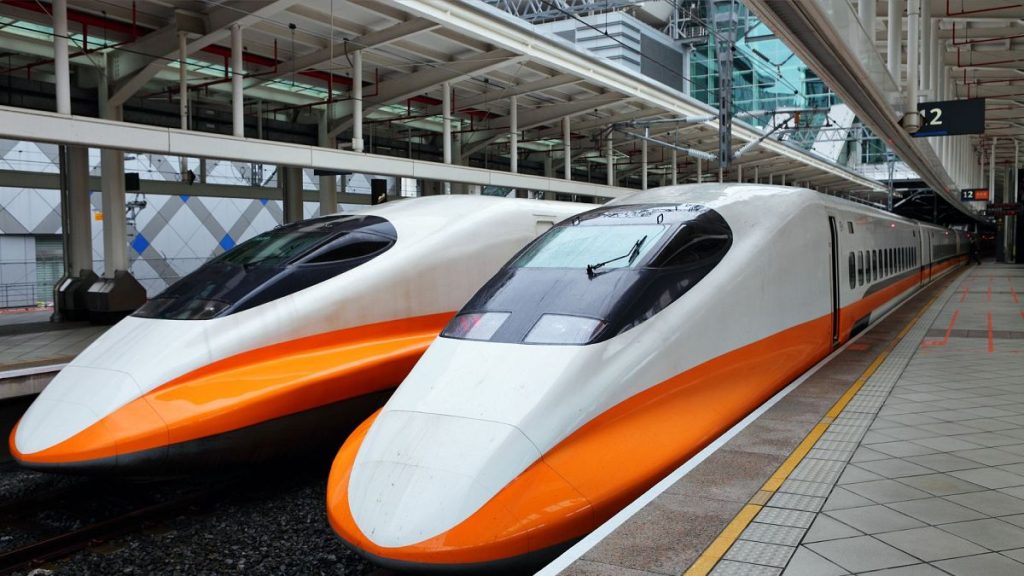Virgin Group Challenges Eurostar’s Channel Tunnel Monopoly
The Virgin Group, led by Richard Branson, is poised to disrupt Eurostar’s long-held monopoly over Channel Tunnel train travel. With plans to order 12 high-speed trains, Virgin aims to introduce competition and usher in a "new era" in cross-Channel transportation. This move mirrors a similar effort by high-speed rail startup, Evolyn, also vying for a share of the lucrative London-to-mainland Europe route. Virgin’s ambitious project, estimated to require approximately £1 billion in launch funding, positions Branson as the primary stakeholder, with potential for additional partners to join. The company has shortlisted two rail suppliers, including industry giants like Hitachi, Alstom, Talgo, and Siemens, and anticipates finalizing the train contract by the first quarter of the year. This order, valued at over £500 million, represents a significant investment in the future of cross-Channel rail travel.
Virgin Group’s entry into the market poses a direct challenge to Eurostar’s 30-year dominance. The company believes that its established brand, recognized for its innovative approach and customer-focused services, can effectively revitalize the cross-Channel experience. While cautious not to prematurely commit to launching a service, Virgin expresses confidence in the project’s progress. Their immediate priority is securing access to the crucial Temple Mills depot, the sole UK facility connected to the High Speed 1 (HS1) line. Ongoing discussions with Eurostar regarding depot access are underway, with Virgin hopeful of reaching a mutually agreeable solution. Acquiring access to this vital infrastructure is a critical step towards realizing their competitive ambitions.
Beyond cross-Channel travel, Virgin Group also harbors ambitions within the UK’s high-speed rail network. This dual focus underscores their commitment to enhancing rail connectivity both domestically and internationally. The emergence of competitors like Virgin and Evolyn signifies a potential shift in the cross-Channel travel landscape, promising potential benefits for passengers. Increased competition often leads to more competitive pricing and a wider range of service options, enhancing the overall travel experience. Eurostar, however, has voiced concerns about the feasibility of accommodating multiple operators, citing capacity constraints at the Temple Mills depot as a primary obstacle.
Eurostar’s opposition to both Evolyn and Virgin Group centers on the limited capacity at St. Pancras and Temple Mills, arguing that accommodating multiple operators’ growth ambitions within existing infrastructure is challenging. They have appealed to the government for assistance in developing a framework that enables equitable investment in network expansion for all operators. This framework, according to Eurostar, would facilitate the growth of all stakeholders while addressing capacity concerns. While Virgin Group remains optimistic about securing access to the Temple Mills depot, acknowledging its capacity to handle at least one additional operator, the reality is that the facility may only be able to support two companies in total. This creates a race against time, with the first company to finalize a train contract likely securing the coveted depot access.
The Office of Rail and Road (ORR) plays a crucial role in this evolving scenario. The regulatory body is tasked with assessing the UK’s maintenance capacity to support expanded Channel Tunnel operations. Their findings will significantly influence the feasibility of multiple operators utilizing the tunnel. The outcome of this assessment will carry weight in determining the future landscape of cross-Channel rail travel. In the midst of these developments, the potential benefits of increased competition remain tantalizing for passengers. Lower fares, more frequent services, and improved overall service quality are all potential outcomes of a more competitive market.
The ongoing developments surrounding cross-Channel rail travel represent a pivotal moment in the industry’s history. Virgin Group’s ambitious entry, alongside Evolyn’s parallel pursuit, challenges Eurostar’s long-standing dominance, promising a potential transformation in how passengers travel between the UK and mainland Europe. The interplay between these competing forces, regulatory decisions, and infrastructure limitations will shape the future of this vital transportation link. The ultimate beneficiaries, however, are likely to be the passengers themselves, who stand to gain from a more dynamic and competitive market.














